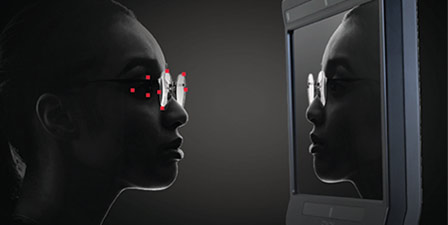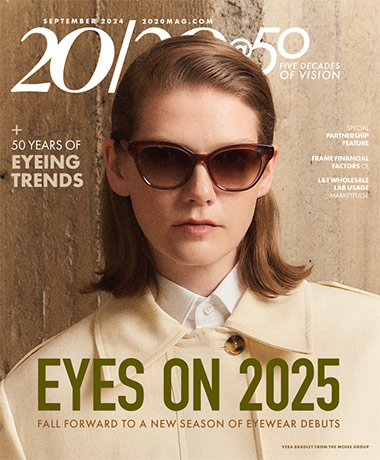
By Marisol Rodriguez, LDO, ABOC, NCLEC
“Peeling back the onion” is an expression that describes the continued self-discovery of this optician. I stumbled into the field right out of high school in 2003, with no direction as to where my life was going. In retrospect, it was serendipitous. I didn’t realize the receptionist job I landed right out of school would end up being the beginning of my career in opticianry.
My first exposure to a professional organization was the National Academy of Opticianry. At the time, I was strongly encouraged by the professionals around me to enroll and complete the Ophthalmic Career Progression Program so I could earn my ophthalmic dispensing license. Ironically, they were all alumni at an opticianry school in Brooklyn, NY. They were all knowledgeable and great opticians who graduated many decades ago with a plethora of knowledge, and I wanted that as well. However, when I would ask a variety of different questions, I was often just given answers, and not necessarily an explanation of “the how” as it wasn’t important to “do the job.” This happened often, and I wouldn’t know how this would affect me until over a decade later when I decided to take myself and my craft more seriously, and to understand that I am fitting eyewear, not “selling” it.
While I am proud of my current credentials, I have come to believe that going to opticianry school to earn a degree in applied science (A.A.S.) should be mandatory and not an alternative or option. Education, or lack thereof, seems to be a sore topic for most. Many seem to get defensive or dismiss the need for formal education in a classroom setting because of their tenured status or “years of experience.” It has forced me to ask myself, “Do I truly have a fundamental understanding of ophthalmic optics?” The answer is no. A broad brush on-the-job training is not likely to provide that when you're being molded to suit a specific practice's needs. When rudimentary topics such as nomenclature cannot be agreed upon, or you ask two different colleagues a question and get two different answers due to all the different avenues taken for certification and licensure, we must ask ourselves, “Is the professional optician a thing of the past, and is the retail optician the current standard?” Opticianry as a profession cannot survive this way.
My hope is that professional organizations such as the Opticians Association of America, the National Federation of Opticianry Schools, and our local state boards or societies that continue to fight tooth and nail to keep the professional optician alive and keep our schools open to properly educate the new generation will continue to encourage licensing in all states. They are in desperate need of participation and support. Without the increase in school attendance for formal education in our opticianry schools, my fear is we will have fewer and fewer resources available to us in pursuit of the development of opticianry.
Learn more about the rich heritage of opticianry with our CE, The Essential Vocation of Opticianry and Its Proud Heritage, at 2020mag.com/ce. This course is free, supported by an educational grant from ZEISS.












